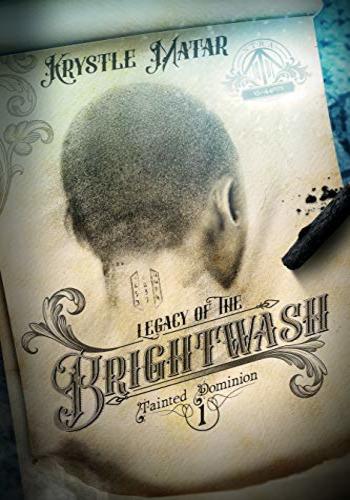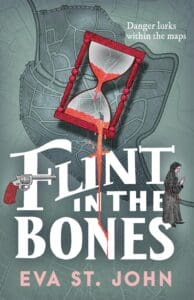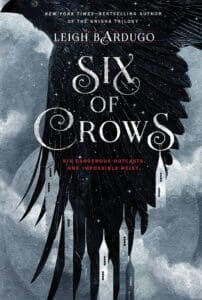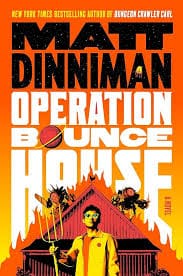Rating: 10/10
Synopsis
Follow the law and you’ll stay safe. But what if the law is wrong?
Tashué’s faith in the law is beginning to crack.
Three years ago, he stood by when the Authority condemned Jason to the brutality of the Rift for non-compliance. When Tashué’s son refused to register as tainted, the laws had to be upheld. He’d never doubted his job as a Regulation Officer before, but three years of watching your son wither away can break down even the strongest convictions.
Then a dead girl washed up on the bank of the Brightwash, tattooed and mutilated. Where had she come from? Who would tattoo a child? Was it the same person who killed her?
Why was he the only one who cared?
Will Tashué be able to stand against everything he thought he believed in to get the answers he’s looking for?
Review
In Pink Floyd’s The Wall, there is a scene during the song Another Brick in the Wall that features legions of children marching in unison, herded along a conveyor belt, falling unflinching into a meat grinder that churns up, until they’re nothing but a packaged product to be consumed. The imagery evokes slaughterhouse massacres in an apt, if on-the-nose metaphor for the British education system at the time and the larger failings of a system that trains people to limit their imagination, to work against their own self-interest, and to willingly surrender their bodies and safety to feed the perpetuation of the very systems they are being shepherded through by malignant actors who willingly perpetuate the ongoing injustice of what is being done to them.
Legacy of the Brightwash is book about what happens in that meat-grinder.
This secondary world fantasy novel is part slow-burn romance, part pseudo-Victorian Era murder mystery, with doses of political intrigue and character study. It is a creative cocktail that slides its hooks into you with blades so fine and sharp that you don’t even feel them sinking in until it’s too late.
The pacing of Brightwash evokes what I can only describe as intentional meandering that I usually come to associate with the likes of Robin Hobb. Each scene takes its time squeezing every ounce of meaning from its premises, and each character is made to bleed for all they’re worth.
This is an open wound of a novel, and the pain between its pages demands to be felt. More than that, it demands interrogation of said feelings. Why these characters feel what they feel is often a signal from Matar that she is aware of the power dynamics inherent to each scene. Few books can crush you by giving you what you want. But this is how Matar manages it.
Everything happening on these pages is demonstrating that these people are the product of forces far larger than themselves. The book plants you so firmly in the mindset of its characters that by the very nature of its structure it is difficult to feel like you yourself are not being ushered into the meat grinder by the very progression of its pages. What begins as a murder mystery soon spirals into a larger story, and the forces arrayed against the protagonists, the structures confining them to their social roles, creates a stark contrast. That of walls closing in even as the world gets broader and the conflict gets bigger, but the system strains against the demands these characters make of it. It strains and chafes against them and their dignity with blades and guns and violence.
Everyone in these pages has been broken, left for dead, or left behind. Most of them don’t know how to manage their emotions. And all of them are giving up their bodies to the system in one way or another. It’s eight hundred pages of people on the precipice of the meat grinder, searching desperately for a reason not to jump in.
This means each character in the novel is fighting to assert what shreds of agency they have left. This is perhaps Brightwash’s greatest strength. These characters are unflinchingly messy. While villains exist, they largely fade into the background, serving as the embodiment of the larger structural forces these characters contend with. Matar allows her characters to be cruel. To be petty. To hurt each other for no reason, save self-harm. Their thoughts often turn in cannibalistic spirals as they pick at the scabs of the people they love—aggravating old wounds out of ill-conceived unbelief at the idea that they themselves are worth loving.
These are characters straining against the limitations of their imagination, fighting to find a reason to believe they deserve anything more than what meager dregs of dignity are doled out in condescending piecemeal fashion now and then. But the breaking of their mental bonds do not come cleanly, and Matar displays a commendable degree of honesty in the portrayal of that process.
It is this messiness, this ability to allow characters to process their many traumas in unhealthy and at time unlikable ways, that allows for such a depth of feeling by the end. They are each rendered vulnerable to an at-times startling degree.
It is this vulnerability that makes the core relationship work so well. The power dynamics inherent to it forces the love interests to navigate their own self-hate and unhealthy habits to make it work. They earn the love of the other by aspiring to be worthy of it. To find a better way to build relationships. To escape the world they know and the systems they are guilty of perpetuating. Love gives these characters something worth earning.
And that’s how you escape the meat grinder.





Leave a Reply